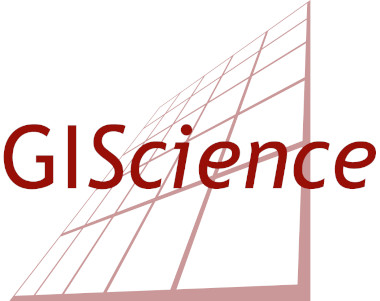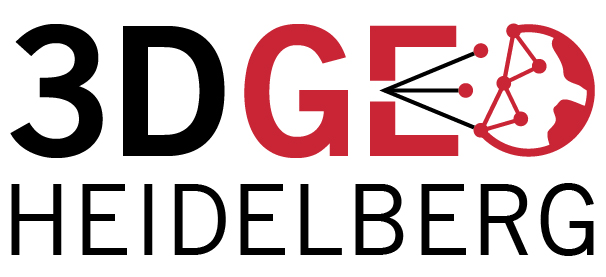Tag: social media
-
Towards using Volunteered Geographic Information to monitor post-disaster recovery in tourist destinations
The aftereffects of disaster events are significant in tourist destinations where they do not only lead to destruction and casualties, but also long-lasting economic harms. The public perception causes tourists to refrain from visiting these areas and recovery of the tourist industry, a major economic sector, to become challenging. To improve this situation, current information…
-
GIScience Heidelberg presentation at Münchner GI-Runde
This week Prof. Alexander Zipf presented some recent work of the GIScience Research Group Heidelberg and HeiGIT at the “Münchner GI-Runde” of the “Runde Tisch GIS e.V. Munich”. The overall topic of the presentation was spatio-temporal analysis from user generated geodata such as VGI or AGI (Social Media). Examples included work on OSM quality analytics…
-
A Route Planner for Every Eventuality – Report about GIScience & HeiGIT
Heidelberg University reports about some of the work of the GIScience research group and at the Heidelberg Institute for Geoinformation Technology (HeiGIT), which is currently being established and core funded by the Klaus Tschira Stiftung. The short reports are available in English and in German. Enjoy! Check some of the Online Services by GIScience &…
-
Keynote at GEOINFO 2016 Brazil
This week Alexander Zipf was giving an invited keynote presentation at the 18th Geoinfo Conference in Campos do Jordão, São Paulo, Brazil. The GEOINFO conferences aim to bring together leading GIScience and spatial database researchers, to present to the local community a perspective of the state-of-the-art in the area. Past speakers have included Max Egenhofer,…
-
How good can predictions from check-ins be?
Check-in data such as provided by Foursquare is one kind of social media feeds which gained considerable interest over recent years. This interest is partly due to their high degree of semantic detail, given that users check-in at places which are categorized by a relatively well-defined taxonomy. One associated prevalent task, in research as well…
-
Mining and correlating traffic events from human sensor observations with official transport data using self-organizing-maps
Cities are complex systems, where related Human activities are increasingly difficult to explore within. In order to understand urban processes and to gain deeper knowledge about cities, the potential of location-based social networks like Twitter could be used a promising example to explore latent relationships of underlying mobility patterns. In a recently published paper (Steiger…
-
Two talks @ Royal Geographic Society: Data quality in OSM and spatiotemporal social media data analysis
Last week members of the GIScience group Heidelberg contributed two talks to the final COST ENERGIC meeting, which was held at the historic Oondatje Theatre of the Royal Geographical Society in London. On Thursday, Benjamin Herfort and Melanie Eckle talked about the latest achievements, current state and future avenues of data quality assessments in OpenStreetMap.…
-
Talk at University of Warwick
Next Wednesday, René Westerholt will talk about the spatial analysis of Twitter data. The talk is part of the “WISC Seminar Series,” which is hosted by the Warwick Institute for the Science of Cities at University of Warwick, Coventry, UK. The talk starts by highlighting the types of spatial analyses that have been conducted so…
-
Social Media Data: Topological Outliers and Their Influence on Spatial Analysis
Social media data is one of the recent and prominent sources of georefrenced social information. It allows in-situ insights into the everyday lifes of ordinary people. For all that, social media data also confronts us with considerable analytical challenges. One of these challenges is the mingling of different user habits, functions of geographic space and,…
-
European Handbook of Crowdsourced Geographic Information
Recently, a new open access handbook edited by Capineri, et.al and supported by the European Commission – COST Action IC1203 (ENERGIC) has been published. This book focuses on the study of the remarkable new source of geographic information that has become available in the form of user-generated content accessible over the Internet through mobile and…
-
Two new DFG projects on VGI, OSM Quality and Social Media Analysis
recently we were happy to receive the notification that two new research projects will be funded by the Deutsche Forschungsgemeinschaft (DFG) the German main funding agency for fundamental research. Both projects belong to the DFG Priority Programme “Volunteered Geographic Information: Interpretation, Visualisation and Social Computing“ (SPP 1894). The two projects are: A:) IntrisicOSMquality: A framework…
-
Establishing the “Heidelberg Institute for Geoinformation Technology” at Heidelberg University – A new project funded by the Klaus Tschira Foundation (KTS)
A major project funded by the Klaus Tschira Foundation (KTS) Heidelberg is starting this July. The KTS will support the establishment of the “Heidelberg Institute for Geoinformation Technology” ( HeiGIT for short) within the Institute of Geography at Heidelberg University. This new project aims at improving knowledge and technology transfer from fundamental research into practice…


